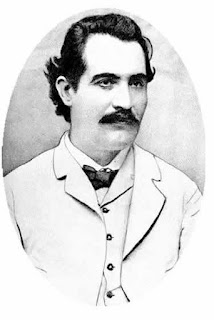Dr. Nicolae Paulescu's Discovery of Insulin
Romanian scientist Dr. Nicolae Paulescu is notable, and controversial, for two things. He is cited, along with his friend Professor A.C. Cuza, as one of the major influences on Corneliu Zelea Codreanu in the latter’s autobiography, For My Legionaries. Dr. Paulescu was also the discoverer of what is now known as insulin.
The latter achievement is, like the rest of Dr. Paulescu’s life, shrouded in controversy. Although he patented his use of insulin, which he called “pancreine,” the only practical use to which he applied it was on dogs, not on humans. Canadian doctor Frederick Banting and Scottish biochemist John James Richard Mcleod read his published work on his experiments with dogs and applied it to human medicine, and then incorrectly claimed Dr. Paulescu’s experiment was unsuccessful. In 1923, they won the Nobel Prize in Physiology or Medicine for their supposed discovery of insulin.
Banting later confessed to “an error in our translation of Professor Paulescu’s article,” attributing this misrepresentation to his and Mcleod’s “poor French.”[1] Many have argued that Dr. Paulescu was unfairly passed over for the 1923 Nobel Prize in Physiology and Medicine for his achievement. Even if we assume that Banting and Mcleod merely made an honest mistake in their misreporting of Dr. Paulescu’s published results, it can still be argued that he deserved the Prize for his discovery of insulin.
In 1996, veterinarian Peter C. Doherty won the Nobel Prize in Physiology or Medicine, the prize that infamously eluded Dr. Paulescu. Furthermore, most winners of this prize have based their work on animal research.[2] The Nobel Prize in Physiology or Medicine has never conceived of medicine in purely anthropomorphic terms, so Dr. Paulescu’s discovery of insulin in dogs is at least as worthy of the prize as later applications of it to humans. As Mark Weber puts it, “The Nobel Committee may never correct its 1923 error. But the truth about the discovery of insulin cannot be suppressed for all time.”[3]





Comments
Post a Comment